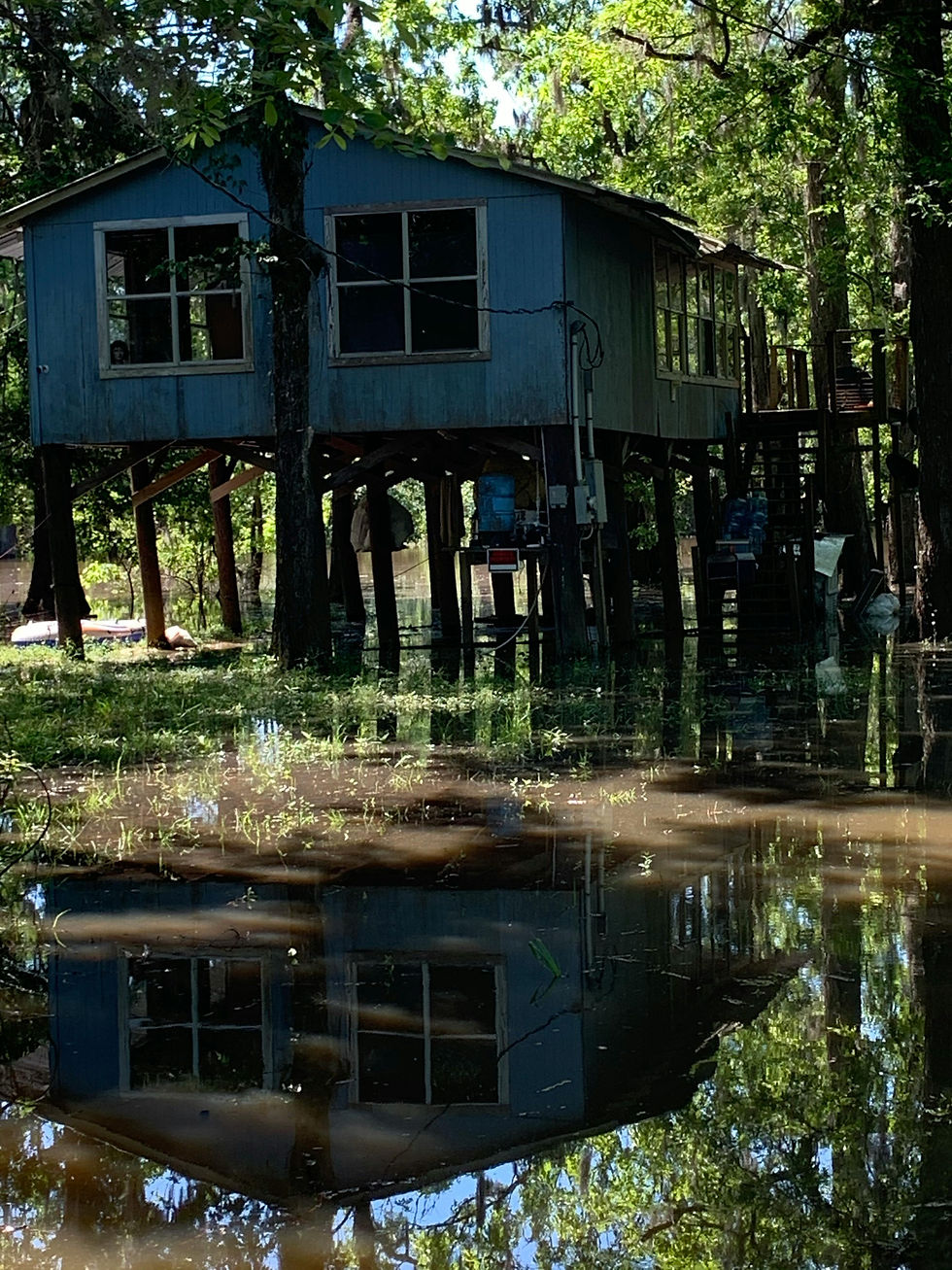The role of researchers in climate action
- Feb 21, 2024
- 4 min read
Updated: Apr 11, 2024

Source: Tyndall Centre
If university researchers feel disempowered about climate action what hope is there for everyone else?
Commentary by Asher Minns and Renee Karunungan
University researchers in the UK feel disempowered about climate action despite wanting to do more for climate action, shows new research led by Briony Latter of the Centre for Climate Change and Social Transformations (CAST) and the Tyndall Centre for Climate Change Research.
Our interpretation of these results may suggest that the accepted wisdom of the agency to act on climate change – the ability to take some actions however small – might not hold very true if University researchers with a professional and social network of people working in or around climate change and sustainability feel disempowered. According to the study, one factor to this disempowerment is that researchers aren’t connecting with their peers about what they’re doing to address climate change. A comparison with general publics would be an interesting addition – is disempowerment any different for University researchers as the general public?
Many researchers neither agreed or disagreed that climate change is a priority for other researchers (43.4%), that other researchers do not know how to address climate change (44.6%) or are reluctant to address it in their professional roles. We do know that people generally underestimate other people. Work with Shalom Schwartz’s Universal Values by Common Cause across many professional communities and countries, and personal experience when training researchers in the science of climate change communication, we know that participants commonly rank other people as motivated by ‘selfish’ values of self-direction, achievement, and power. Participants themselves rank themselves as holding universal and benevolent values, not at all selfish.
Hurdles to climate action
The study is a result of a survey with 1,853 participants across 127 UK universities and across disciplines and career stages. The highest responses came from Cardiff University, University of Cambridge, and University College London. The results show that while strongly supporting climate advocacy, UK researchers face a multitude of hurdles to taking climate action. This includes high workload, uncertainty about which actions to take, perceived lack of agency or power, inflexible university processes, and pressure to travel for work.
This finding further reflects the discussions at the 2023 Tyndall Assembly session on “Activism and Advocacy as a Researcher”. Time, energy, and social pressure were also identified by Tyndall researchers as challenges in engaging in activism and advocacy as a researcher. They considered it a “burden” trying to find time in engaging in activism and advocacy after their nine to five jobs.
Universities’ commitments to climate action
Nearly all researchers are worried about climate change, 96% want to do more in their University settings. Over half or 54% of the researchers feel that addressing climate change is a priority for their university, the study found that 48.4% think their universities are not doing enough despite the pledges and commitments.
Universities and Further Education institutions contribute to 2.3% of the UK’s emissions and have committed to climate action, with at least 44 universities declaring climate emergencies and pledging deadline dates for achieving net zero targets. The Climate Commission for UK Higher and Further Education has a target of net zero by 2030 – only six years time. Will campus emissions be at net zero by 31 December 2029?
Most University emissions are Scope 3 – which means all the indirect emissions from purchasing, commuting to work, flying to meetings, etc. Scope 3 varies between 60% (Cambridge in 2014), 80% (Manchester with 2020 emissions data) and 90% of University emissions (Manchester Metropolitan University with 2022 emissions data).
The international nature of universities is a big challenge because air travel is part of career expectations for researchers to build their collaborations and networks. Oxford University’s sustainability report said their annual emissions from air travel is half the carbon produced by all the buildings in their estate. Cambridge University’s emissions from air travel in 2018-2019 was also reported to be the same as the university’s emissions from the use of gas. According to the survey, 66% of researchers think universities do not provide them with information on how to conduct research in a low-carbon way. Researchers see travel as a key area where both their universities and themselves can act to better address climate change in their research practices, for example, “resisting pressure to do lots of international travel unless there is an extremely strong justification for it”.
As an example of how institutions can provide and support researchers on low-carbon research, the Tyndall Centre long-ago created a travel strategy to encourage low carbon climate research – a system to monitor and justify travel emissions and to support individual commitments to reducing emissions.
The role of researchers in climate action
When asked about how they think they could use their role to positively impact climate change, the top answers were directly teaching about climate change and applying sustainability principles to their work. However,researchers said that high workload is the biggest barrier to them addressing climate change through their roles.
“For something to be a priority something else has to be dropped out as I’m only human”, according to one senior researcher who took part in the survey. Reduced workload, more institutional support, and more knowledge on what actions to take were identified as incentives for researchers to do more on climate change.
“These findings offer universities and the wider Higher Education sector a better understanding of their research staff. Given universities’ climate commitments, they should feel encouraged that so many researchers want to take climate action. However, there is a real need for the sector to recognise the barriers that researchers face and use these findings as an opportunity to create a research culture that better addresses climate change.” said lead author Briony Latter.





Comments